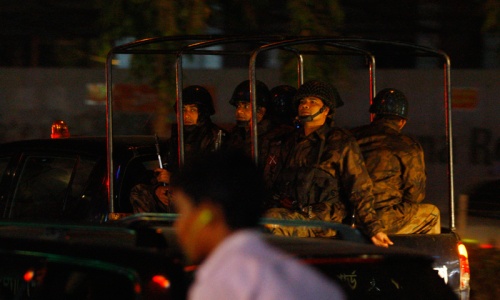DHAKA: Bangladesh's war crime tribunal launched a contempt case Thursday against a Dhaka-based British journalist for allegedly criticising the court in his writings and questioning the death toll from the nation's 1971 independence war.
The International Crimes Tribunal – a domestic court set up by the country's secular government to try suspected war criminals including opposition leaders and key Islamic leaders – initiated the case after rejecting David Bergman's assertion that the articles were “accurate.”
“The court initiated contempt proceedings against Mr Bergman for publishing three articles on his blog, which are (allegedly) critical of certain aspects of tribunal's judgments, orders and proceedings,” Bergman's lawyer, Mustafizur Rahman, said.
The court has given Bergman 15 days to explain why punitive action should not be taken against him, Rahman added.
The court acted after a lawyer accused Bergman in February of being in contempt of the tribunal over three of his articles that allegedly questioned the death toll in the 1971 war and criticised the court's work.
The Bangladesh government has said three million people died in the nine-month war in which it won independence from Pakistan, but some historians place the death toll much lower.
Bergman, 48, who works for a Bangladeshi English daily, said he was “disappointed” at the court's decision and would “vigorously contest the claim.”
He said he was “very concerned” that the court provides no right to appeal in such cases after a conviction.
“As we explained to the court, any criticisms of the tribunal contained in these articles were 'fair criticism' and permitted under Bangladesh law,” Bergman said.
The articles “were accurate, referenced other published materials and legal decisions, and were made in sober and restrained language,” the journalist added.
Bergman, who won a British television award in 1995 for a documentary on Bangladesh war crimes, was also warned by the court in 2012.
Since its 2010 inception, the tribunal has handed death sentences to several key opposition leaders including a prominent official of the country's Jamaat-e-Islami party who was hanged last December.
Rights groups have urged major reforms of the court, saying it falls short of international standards of justice.
Opposition parties have also blasted its work, calling the trials politically motivated and aimed at eradicating their leadership.















































